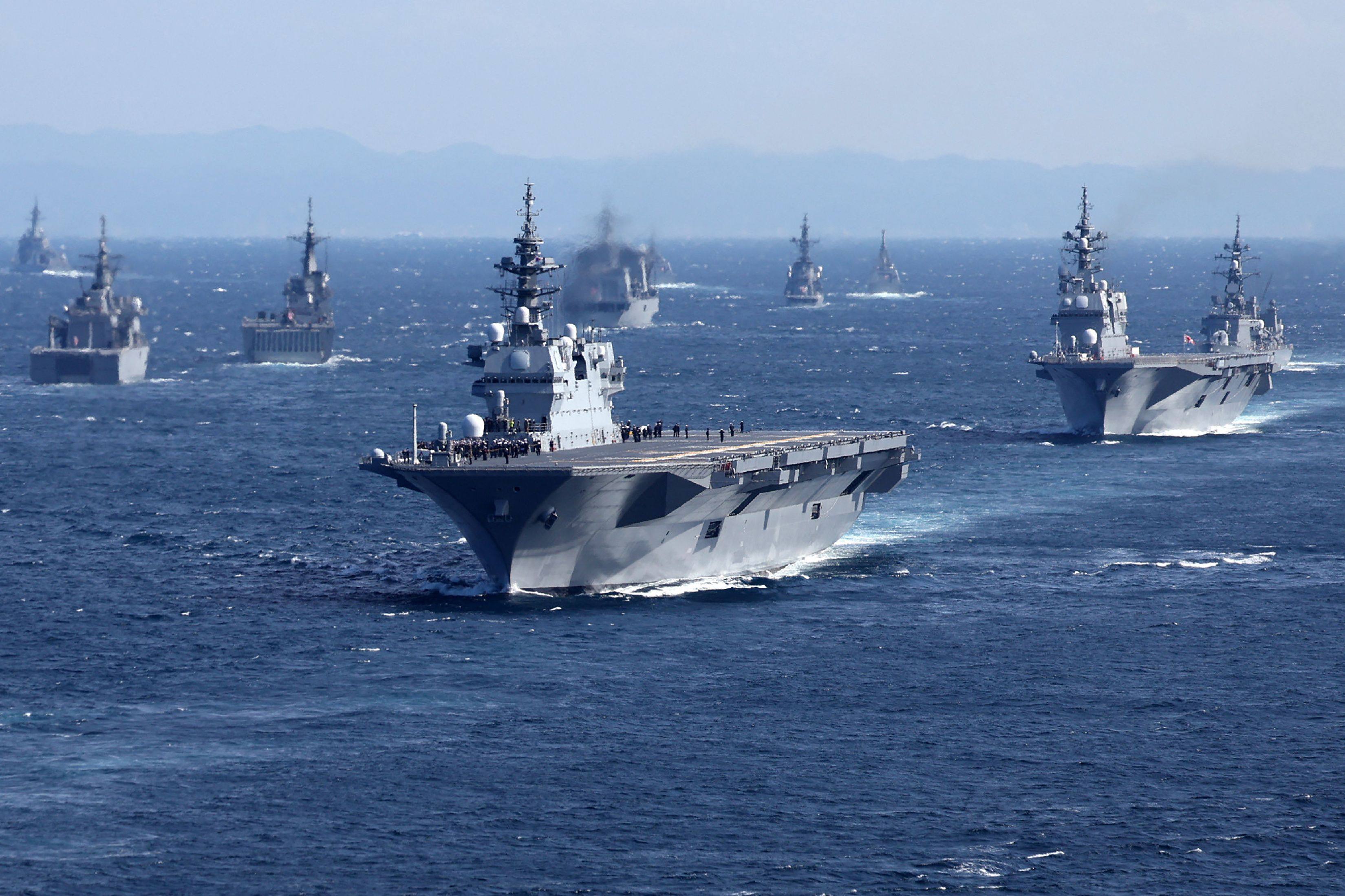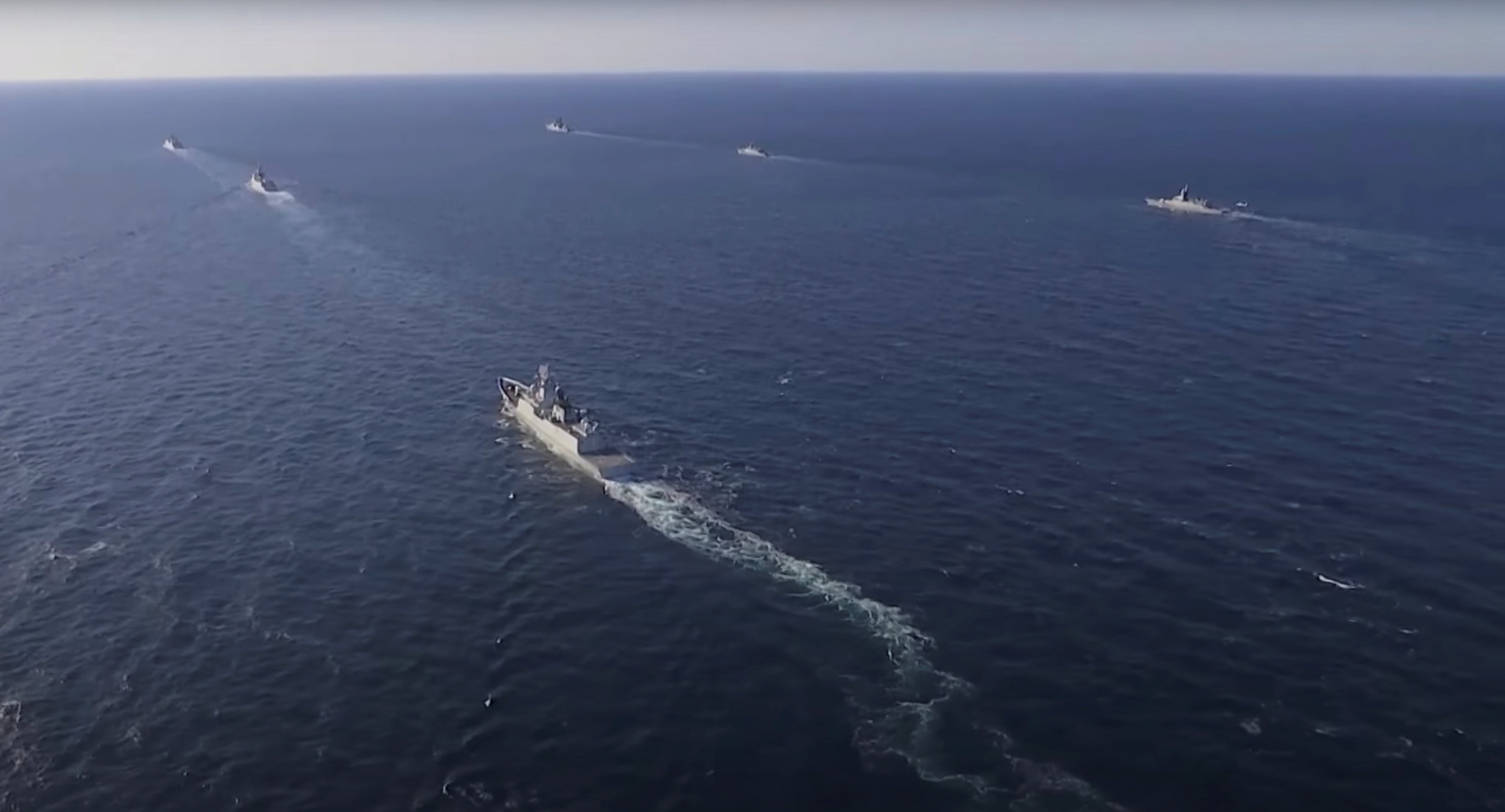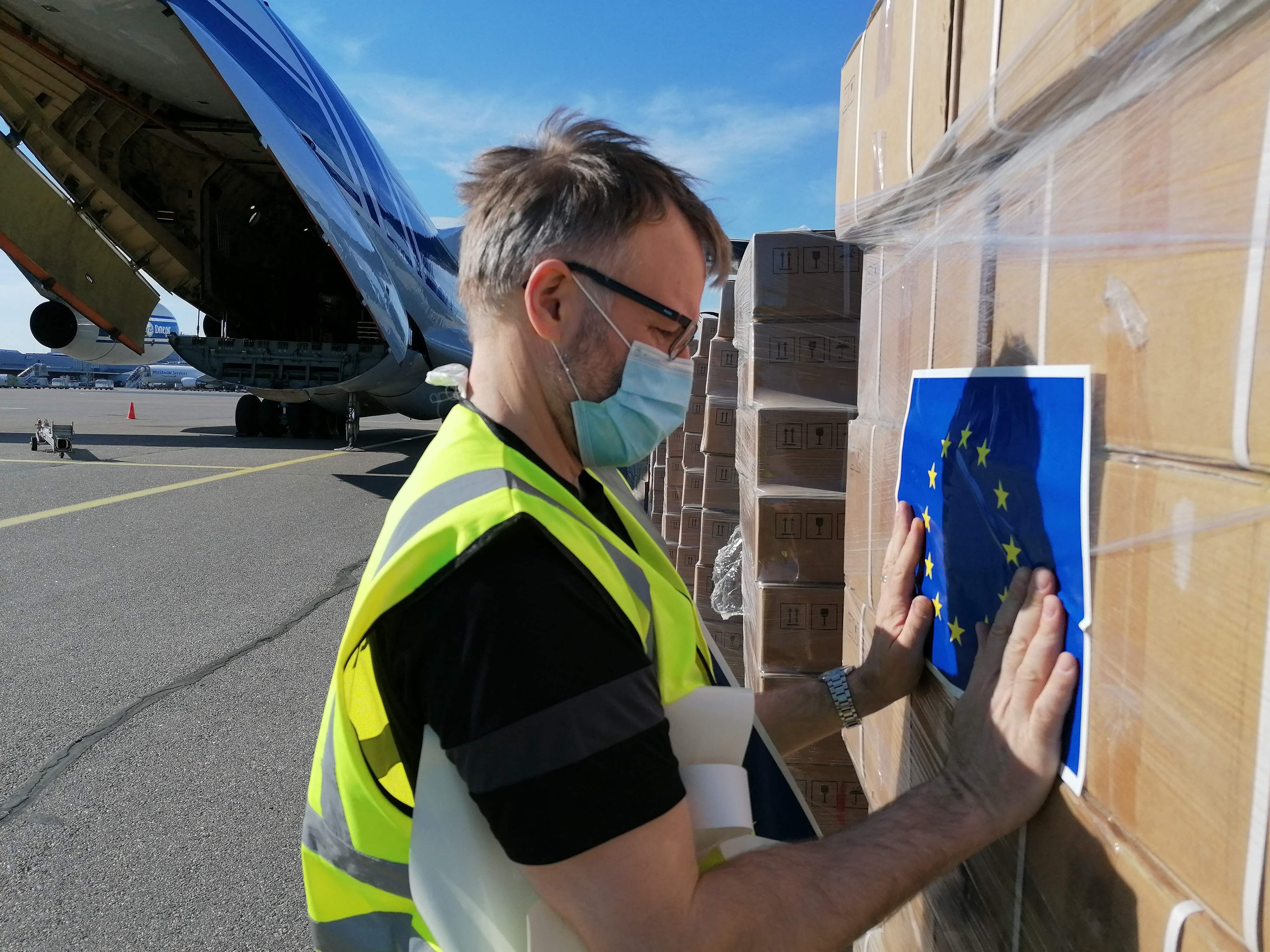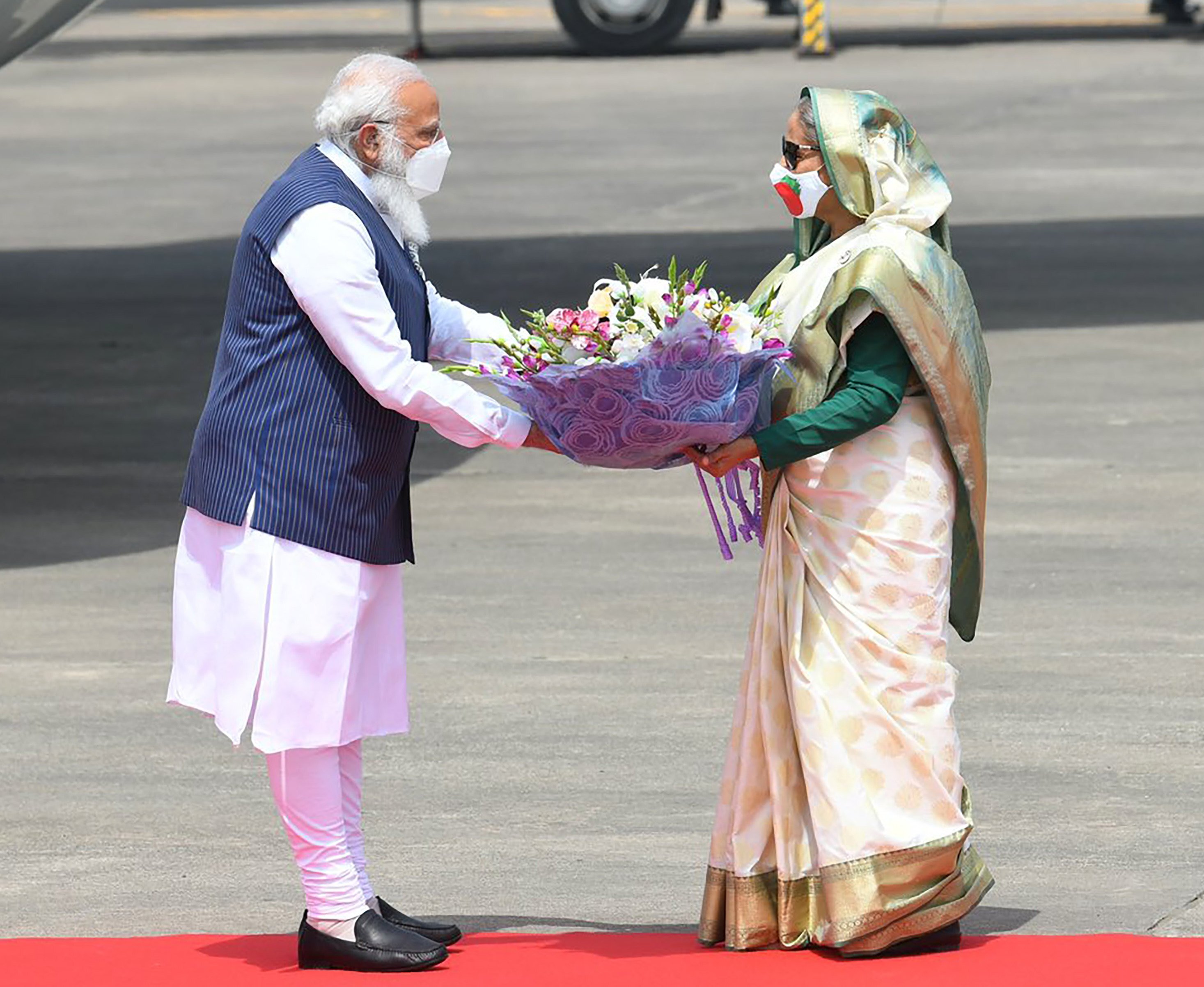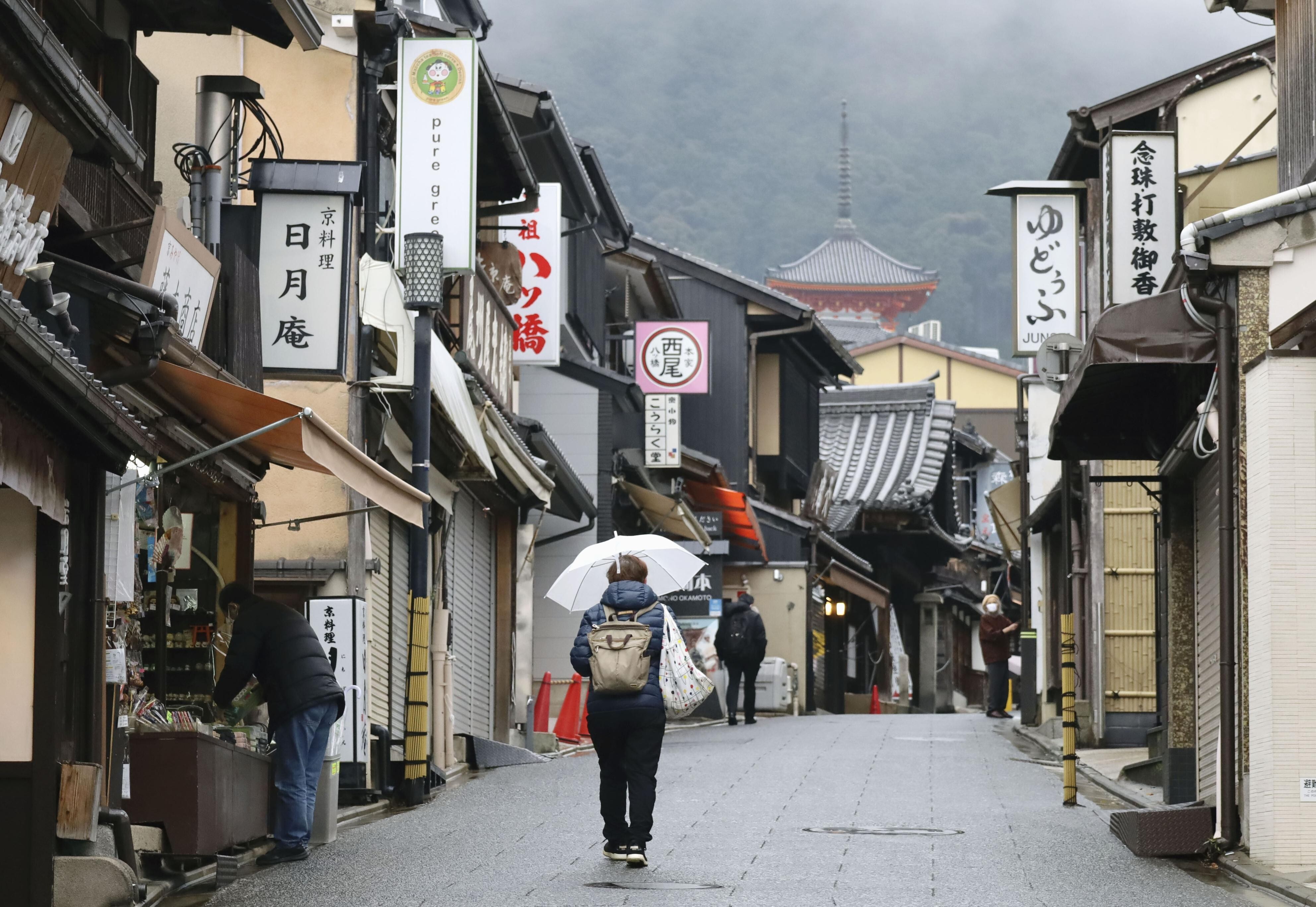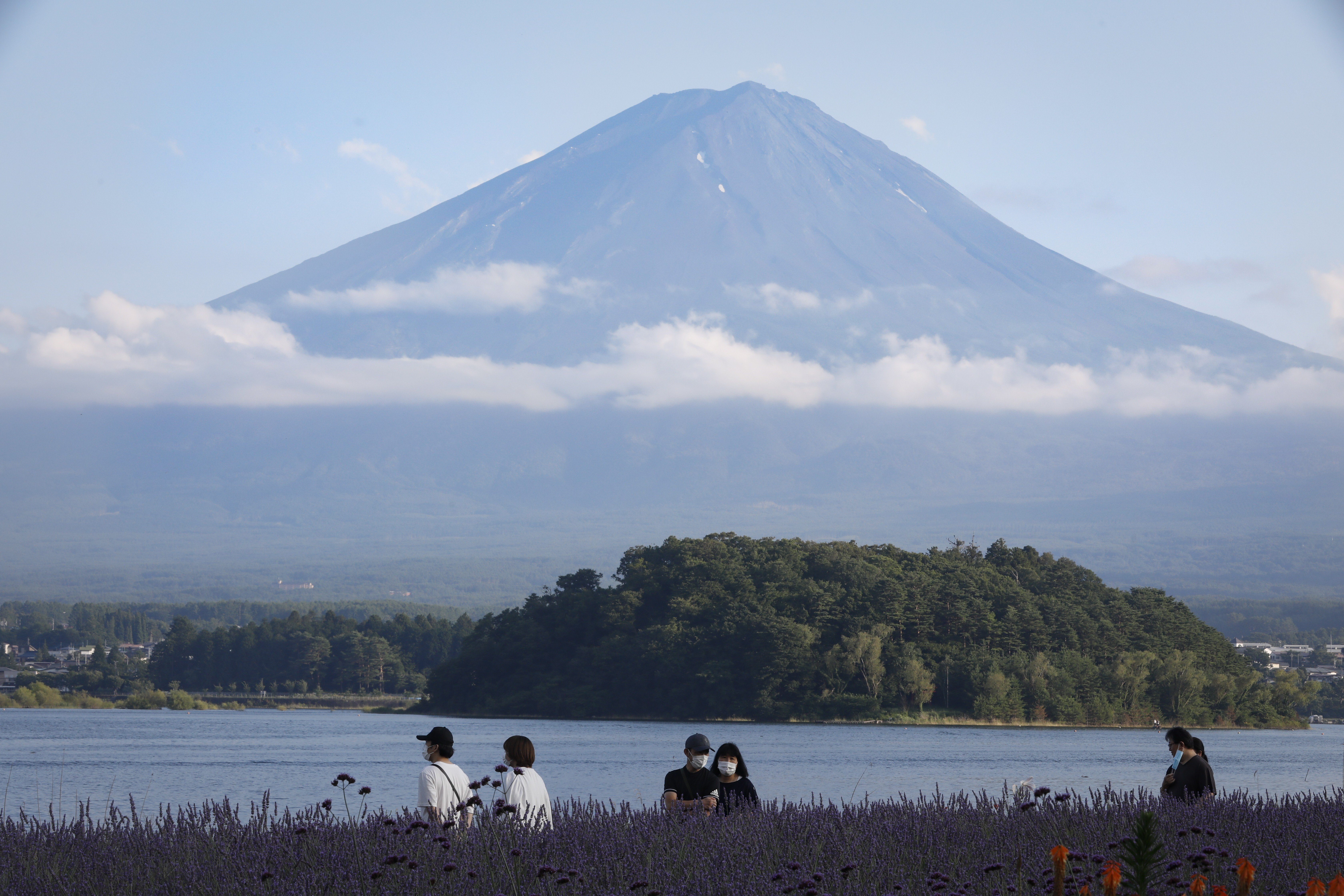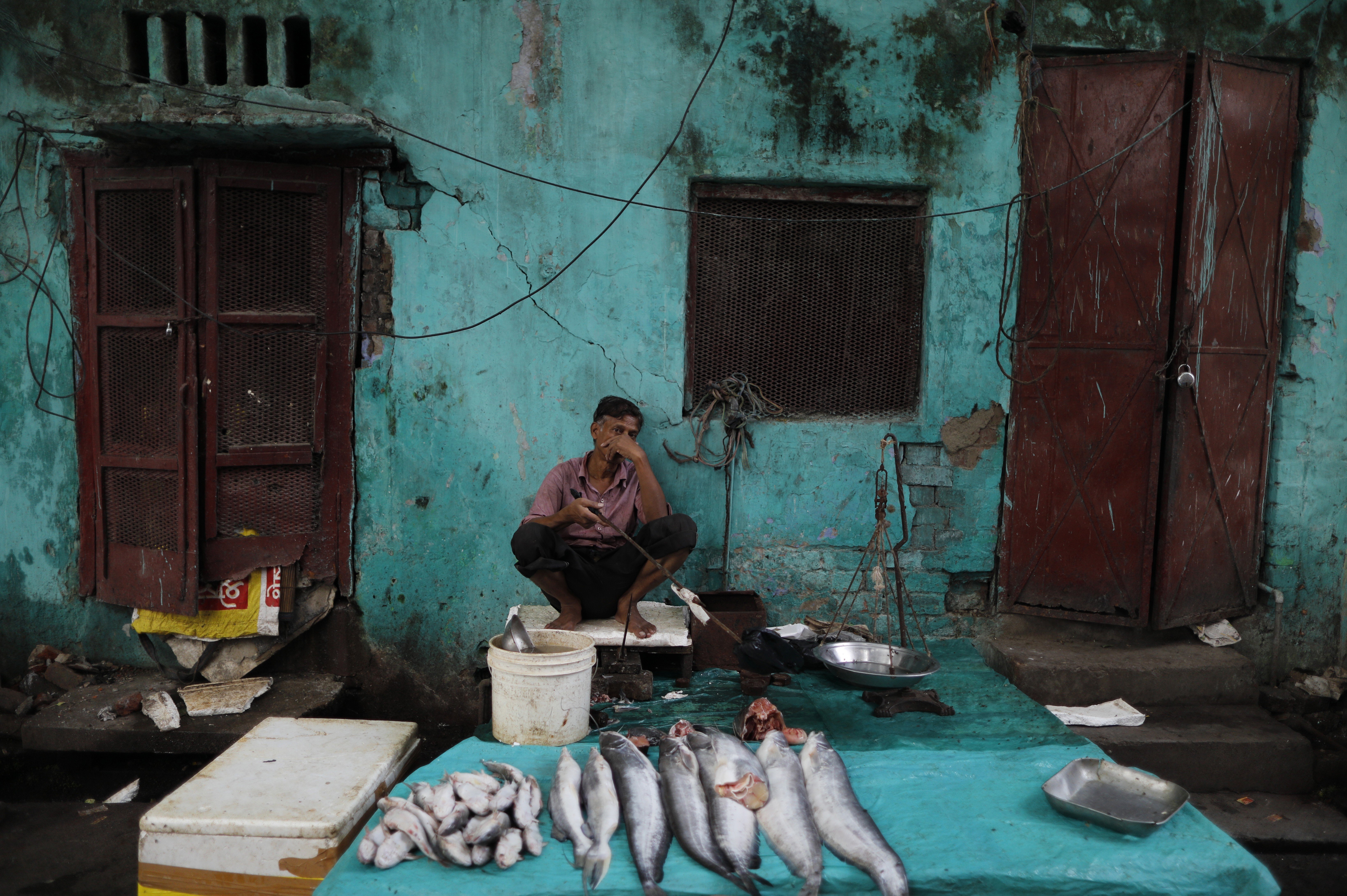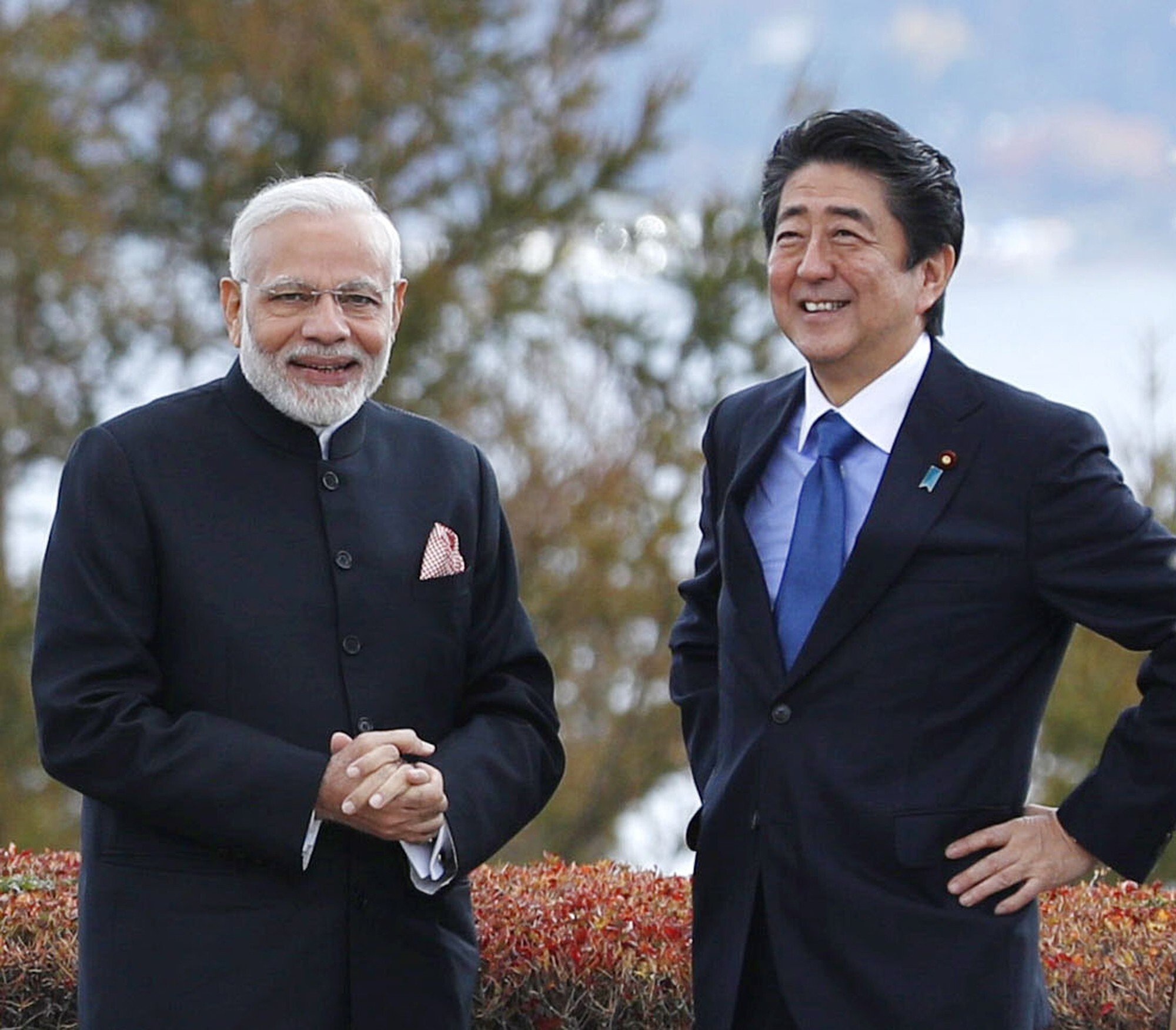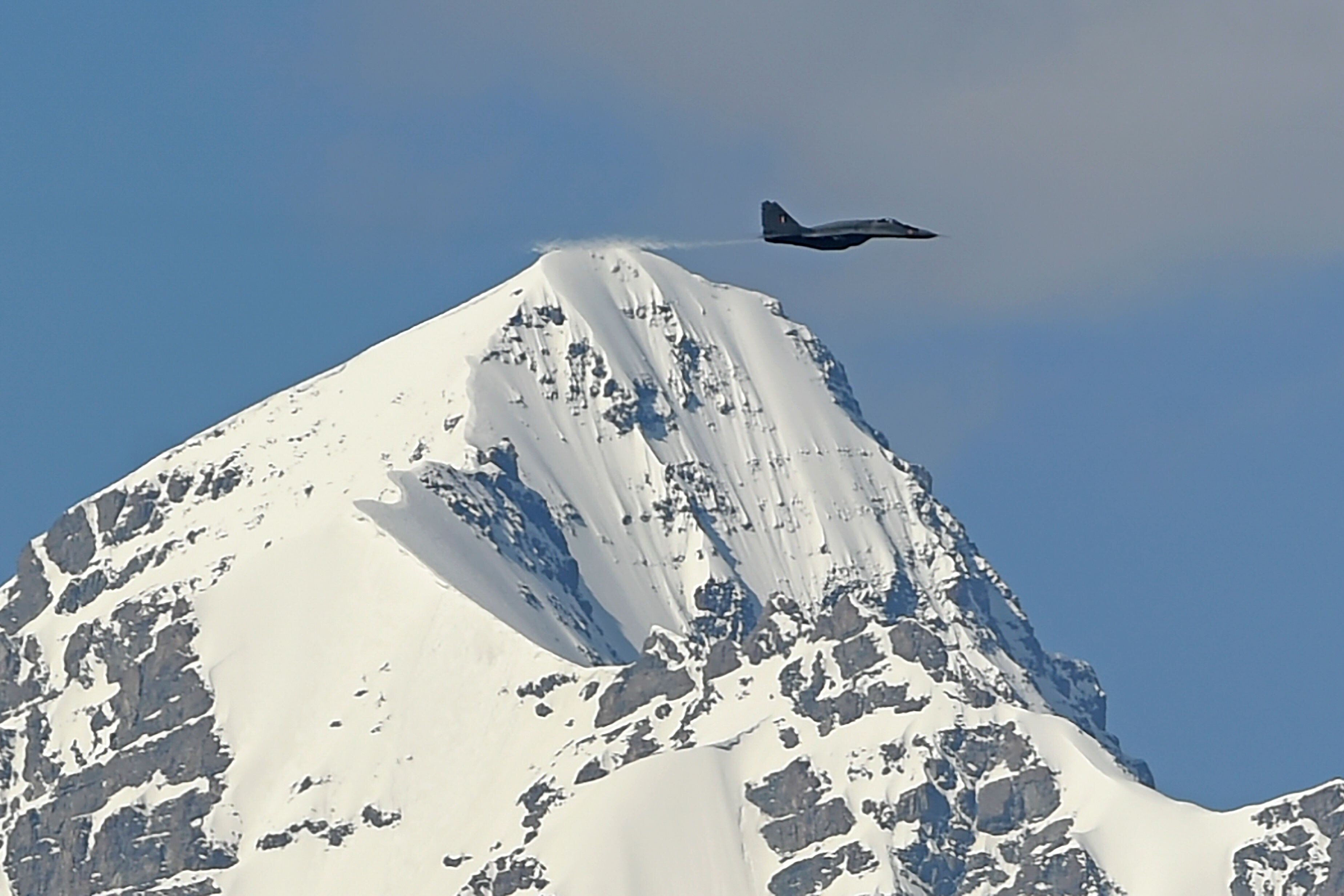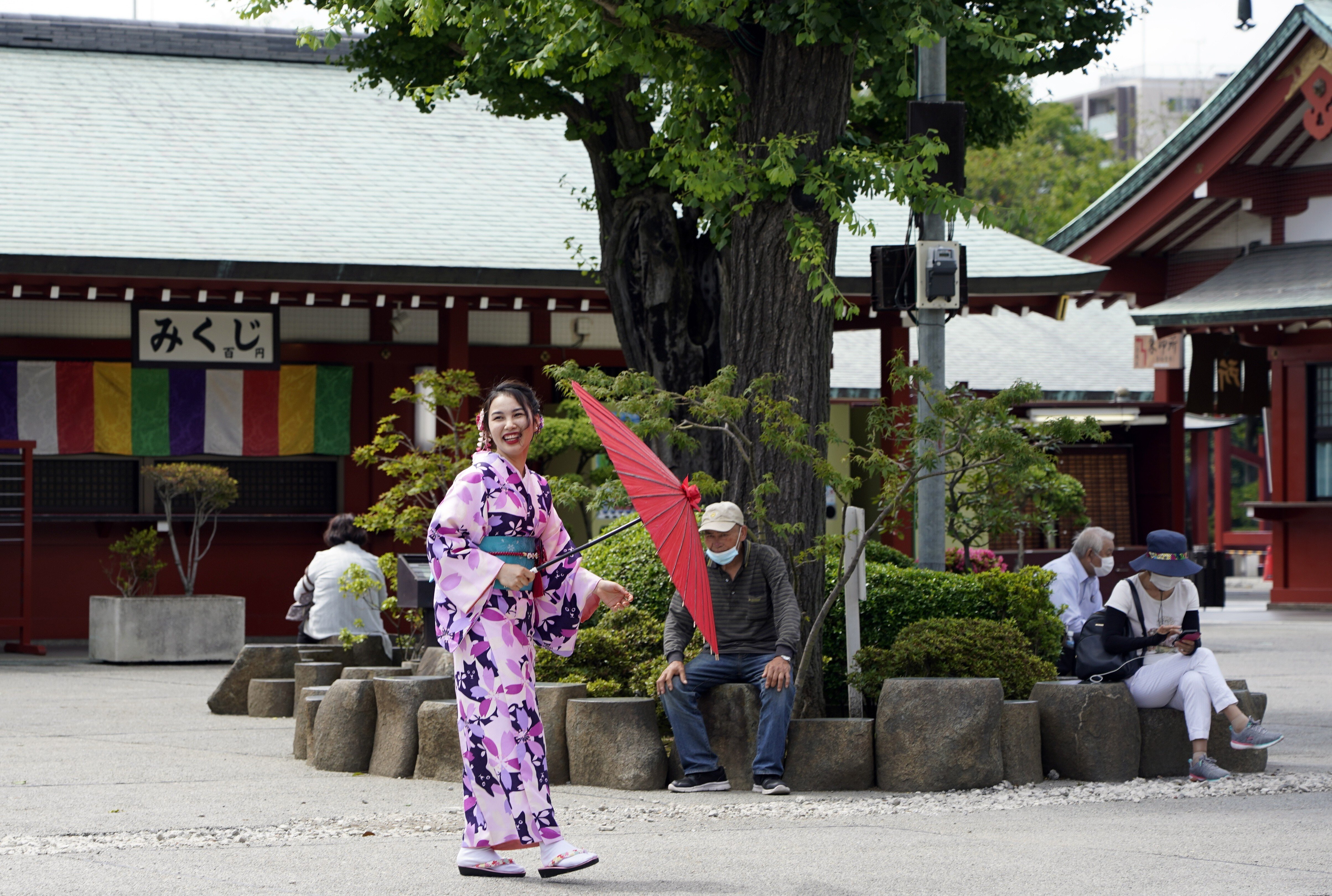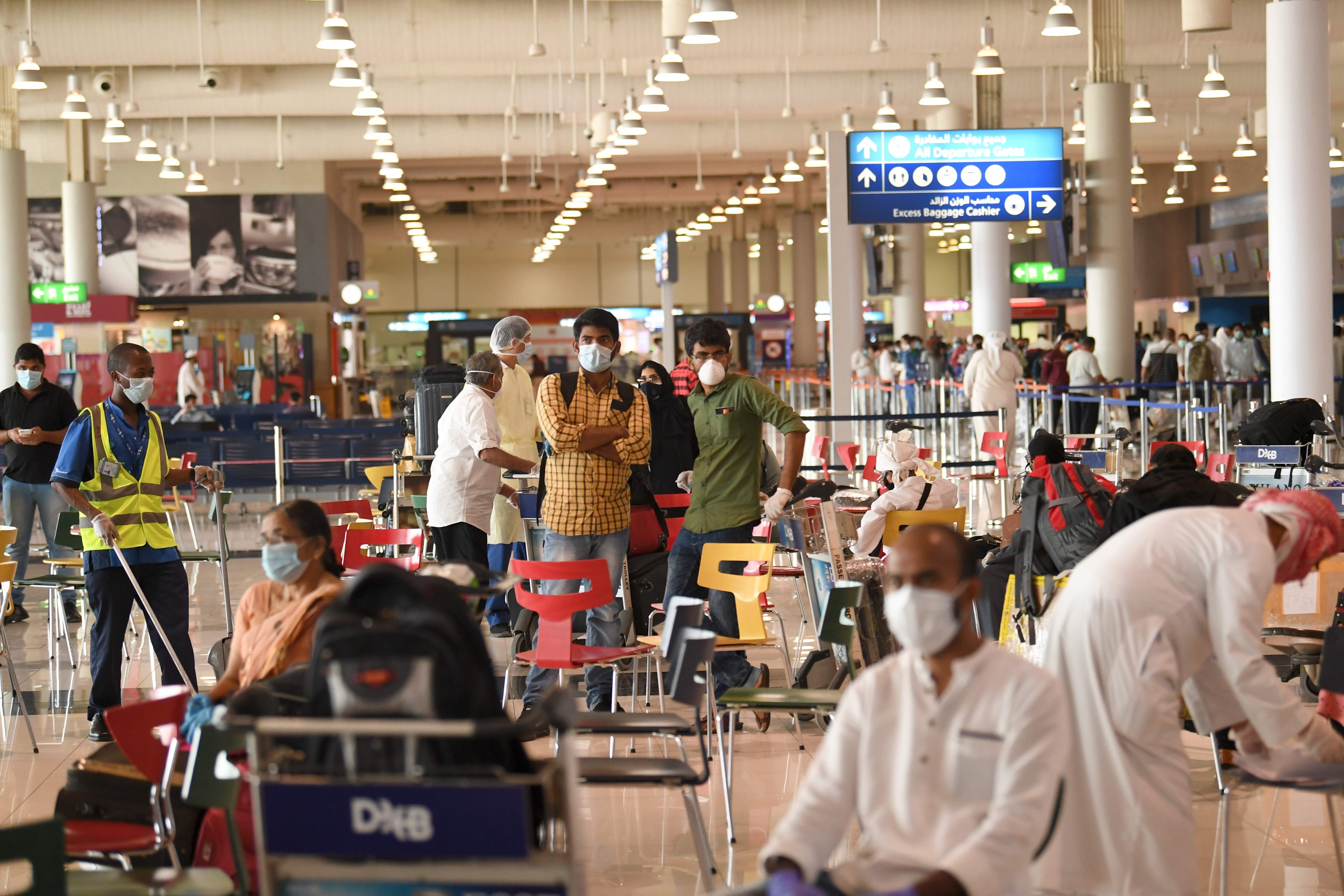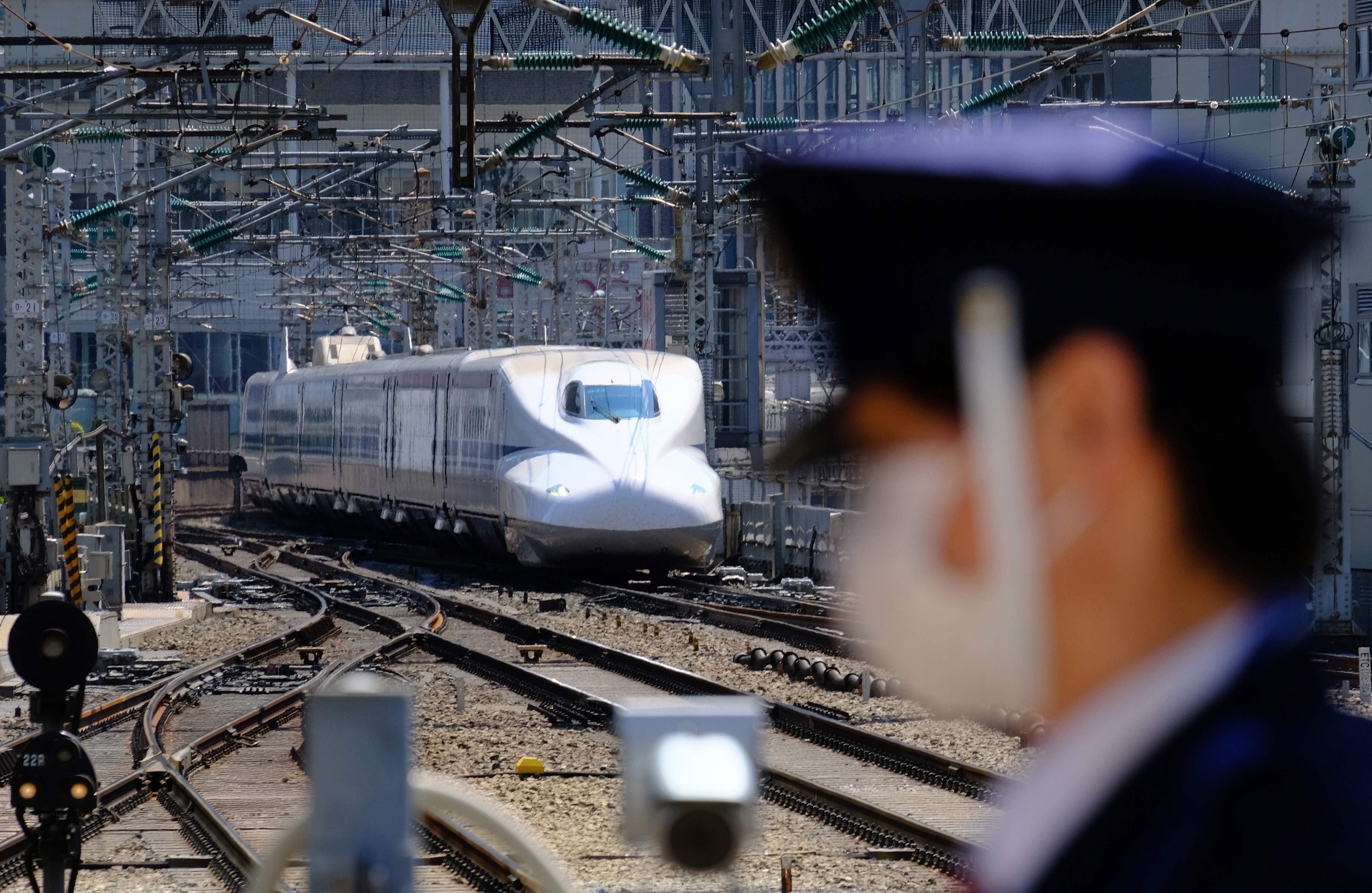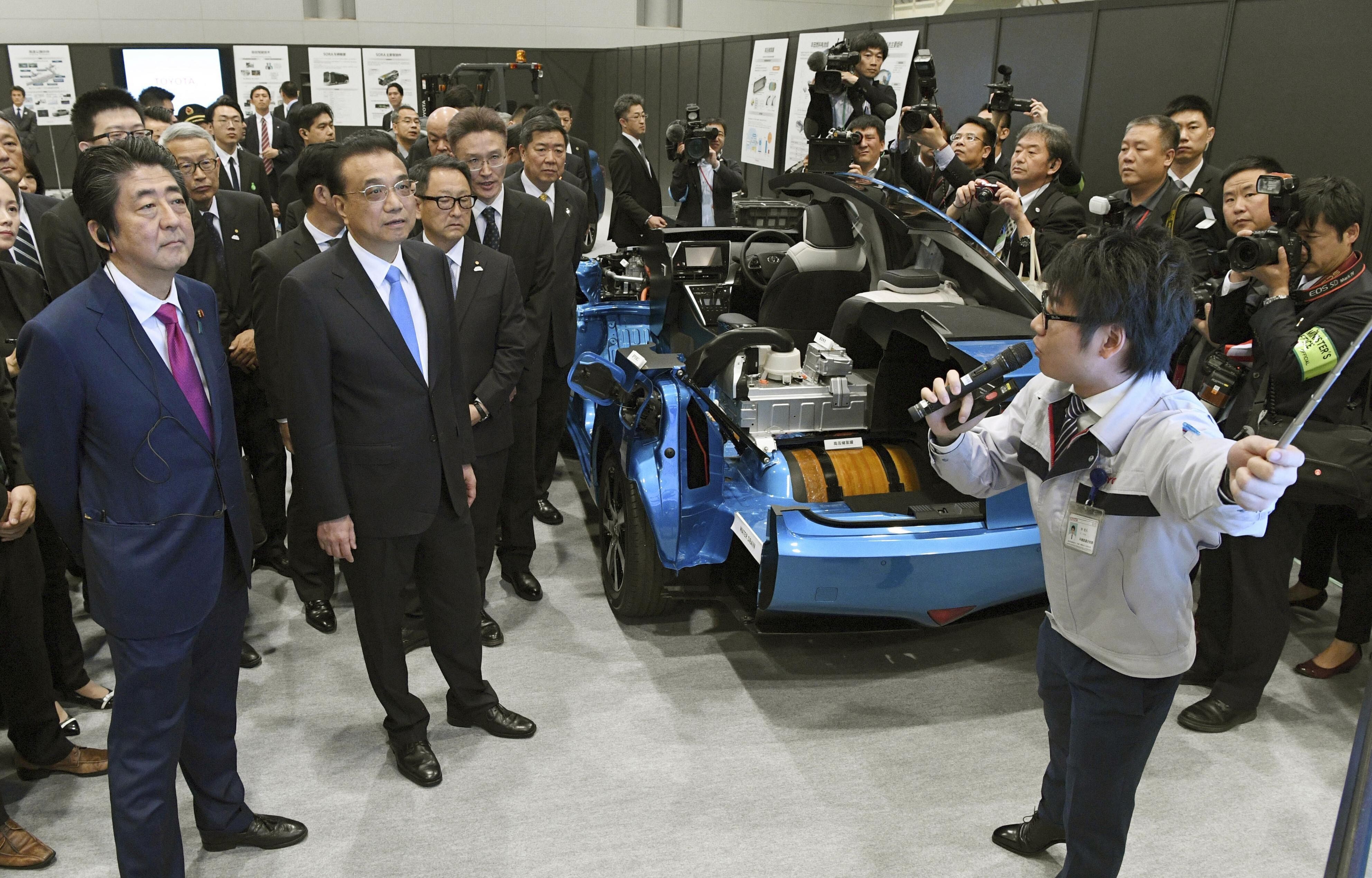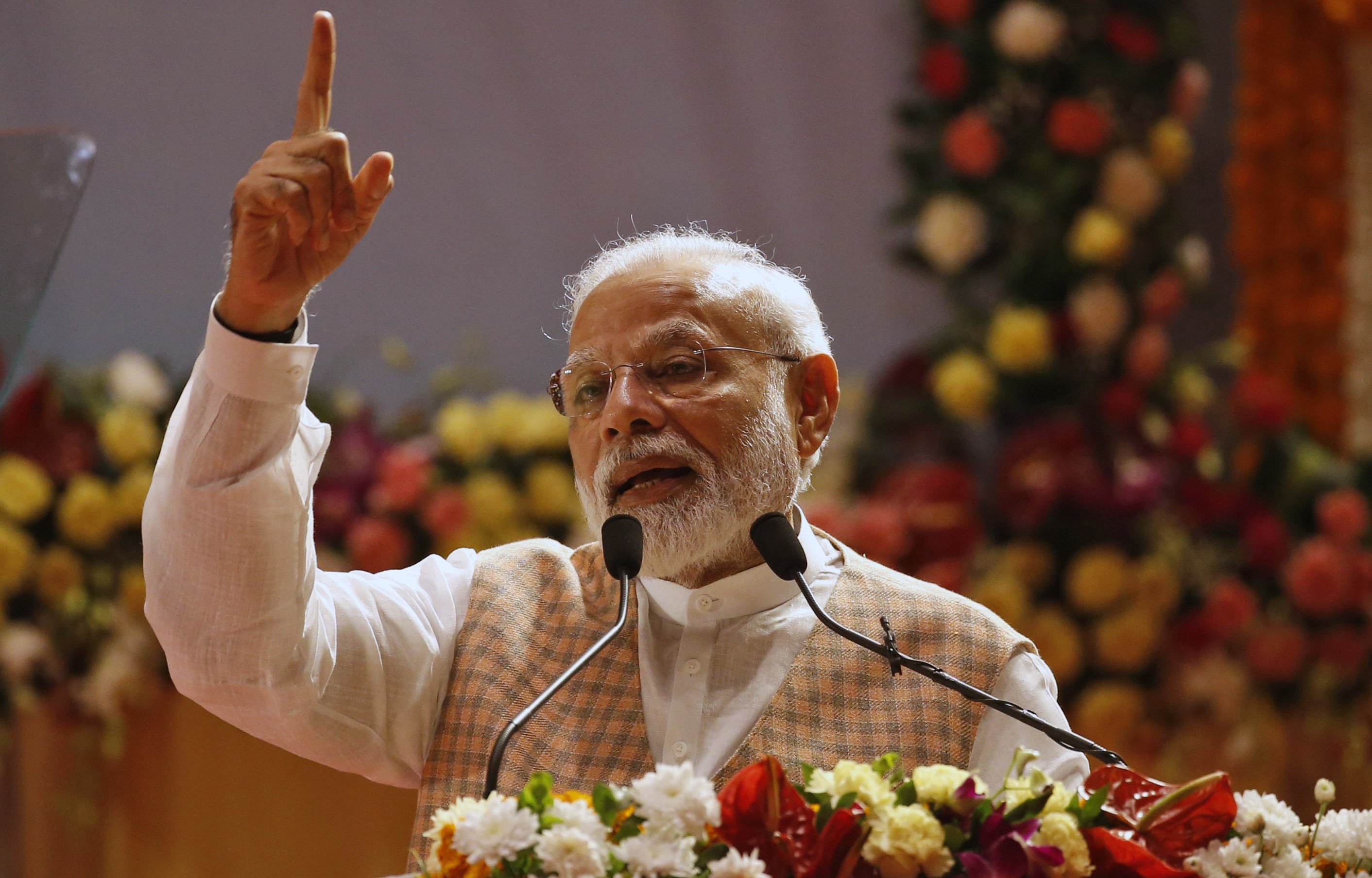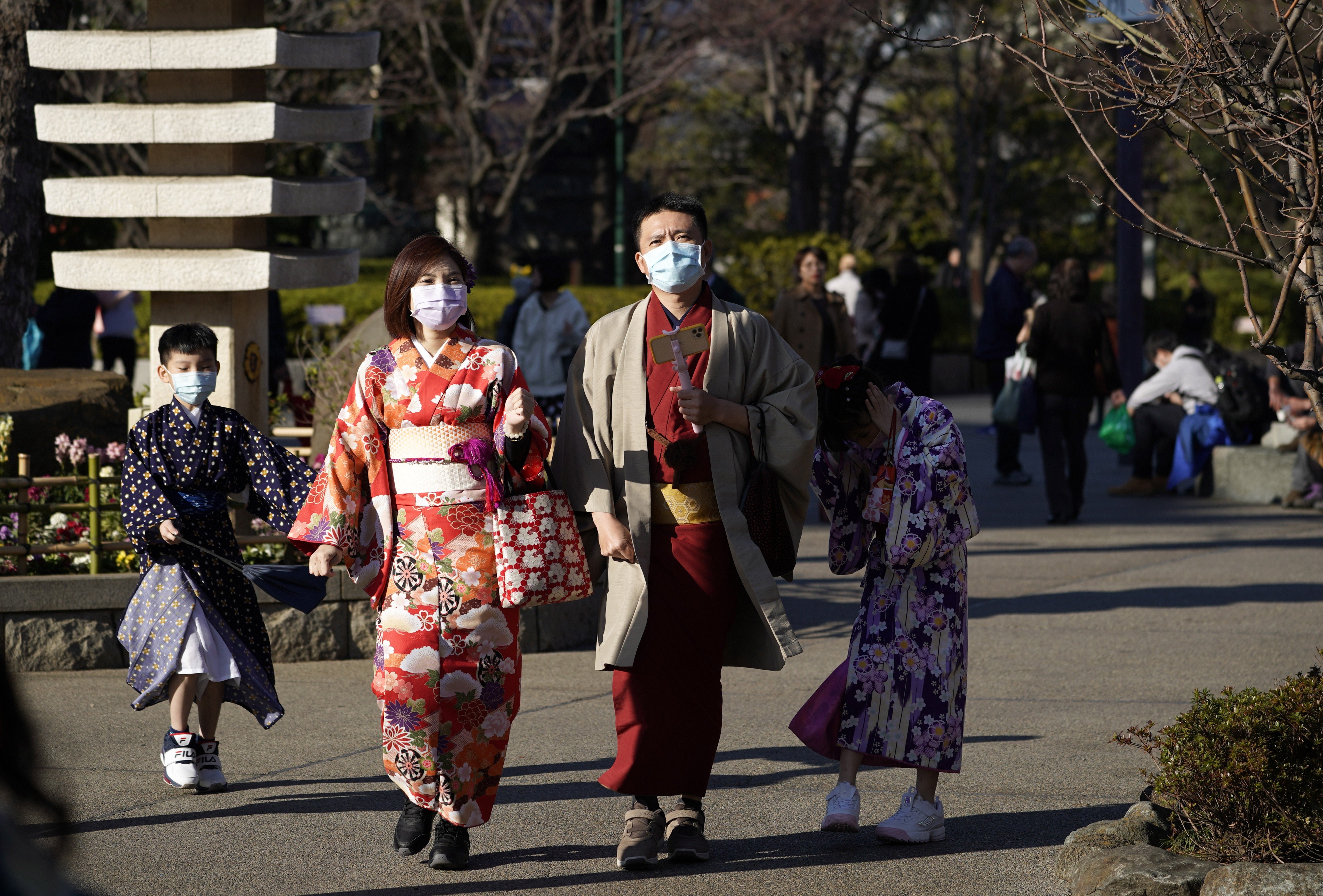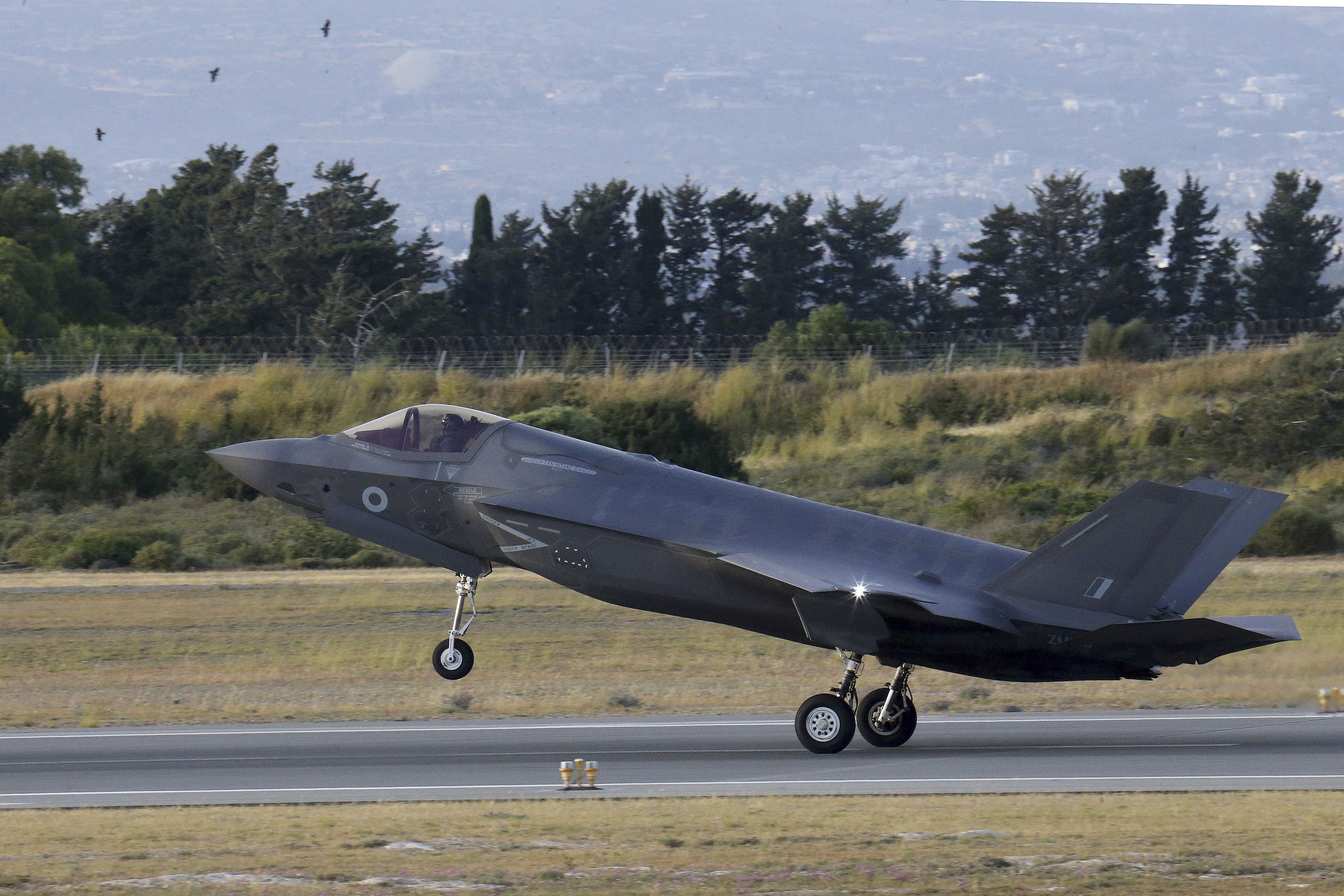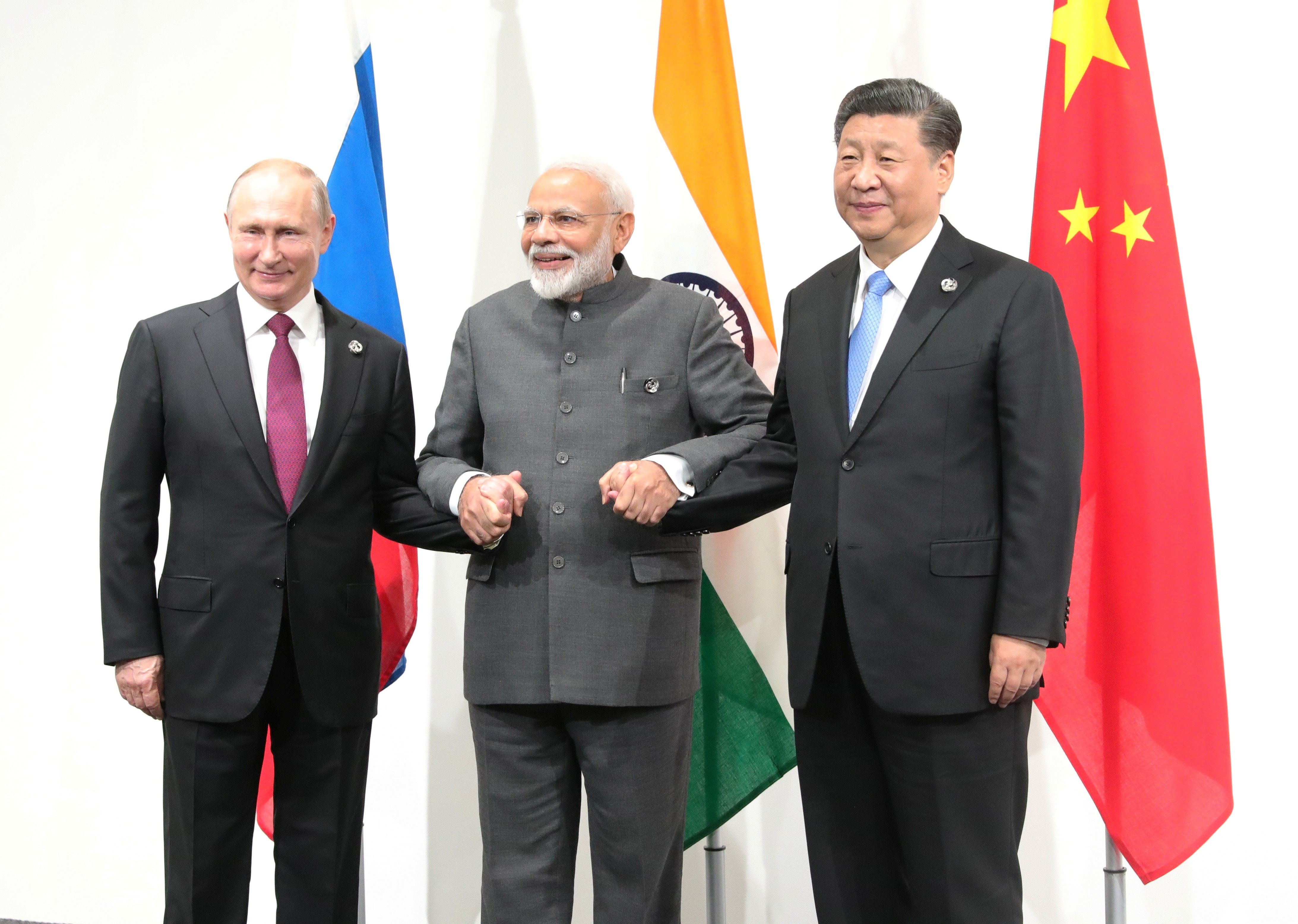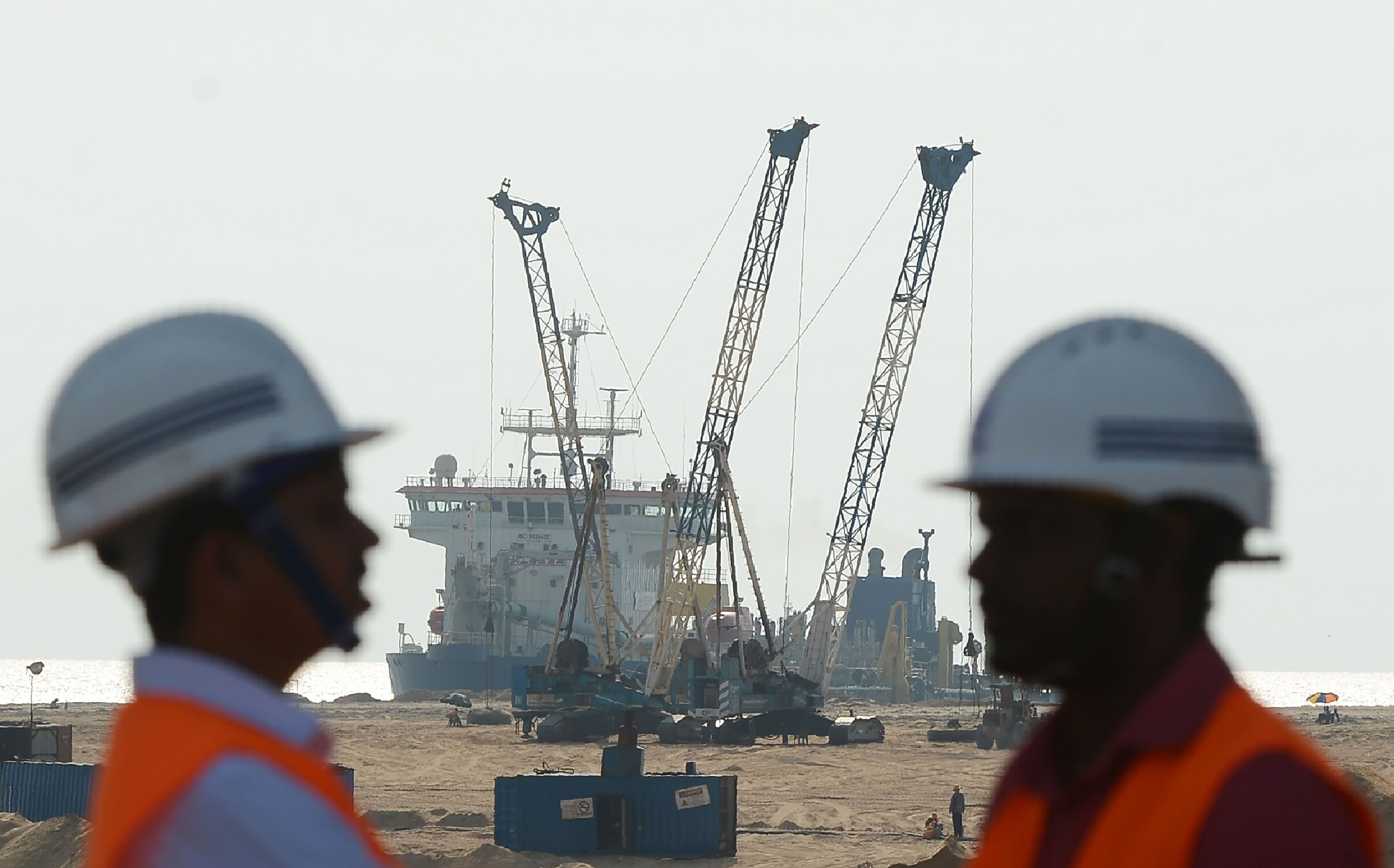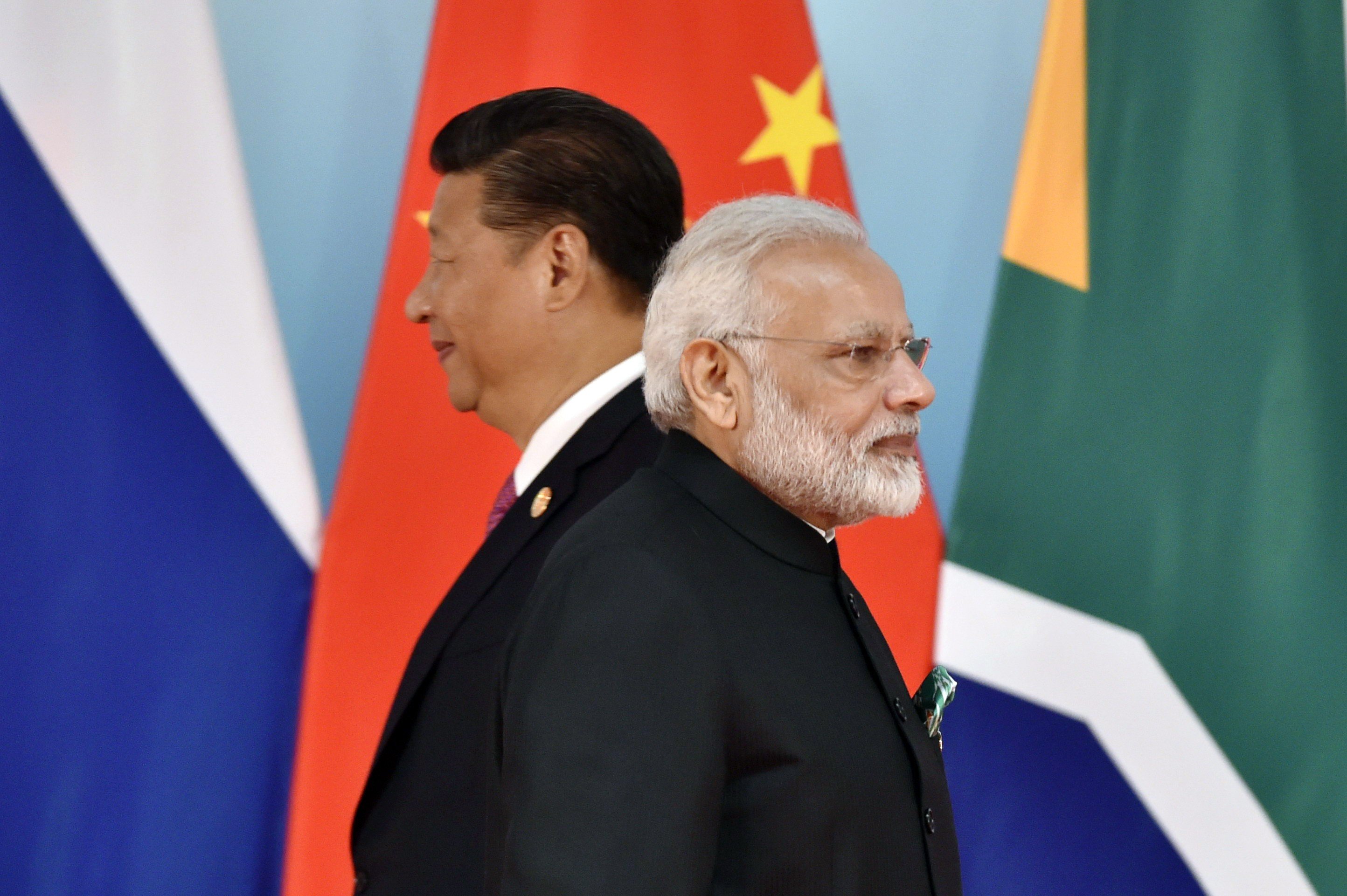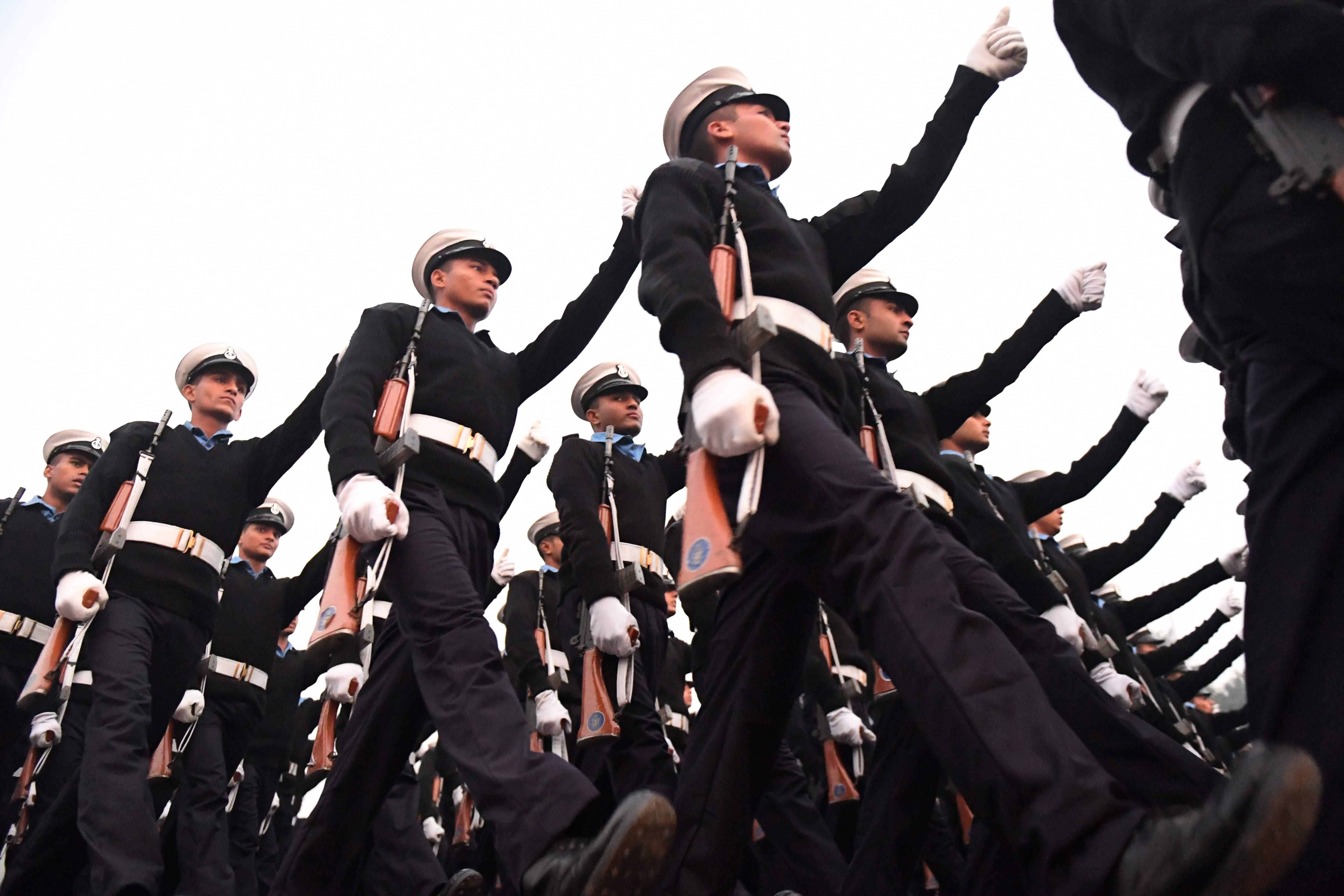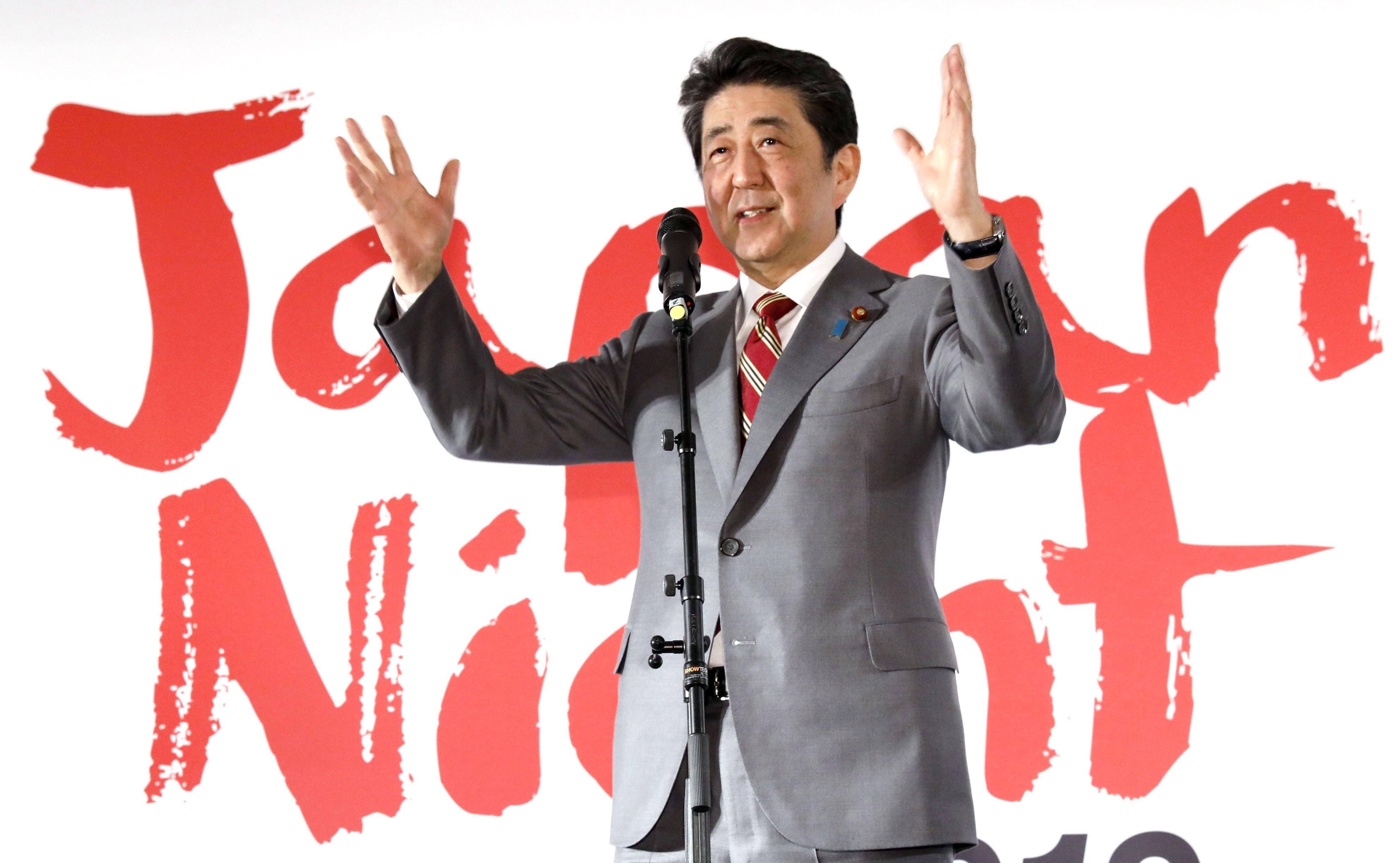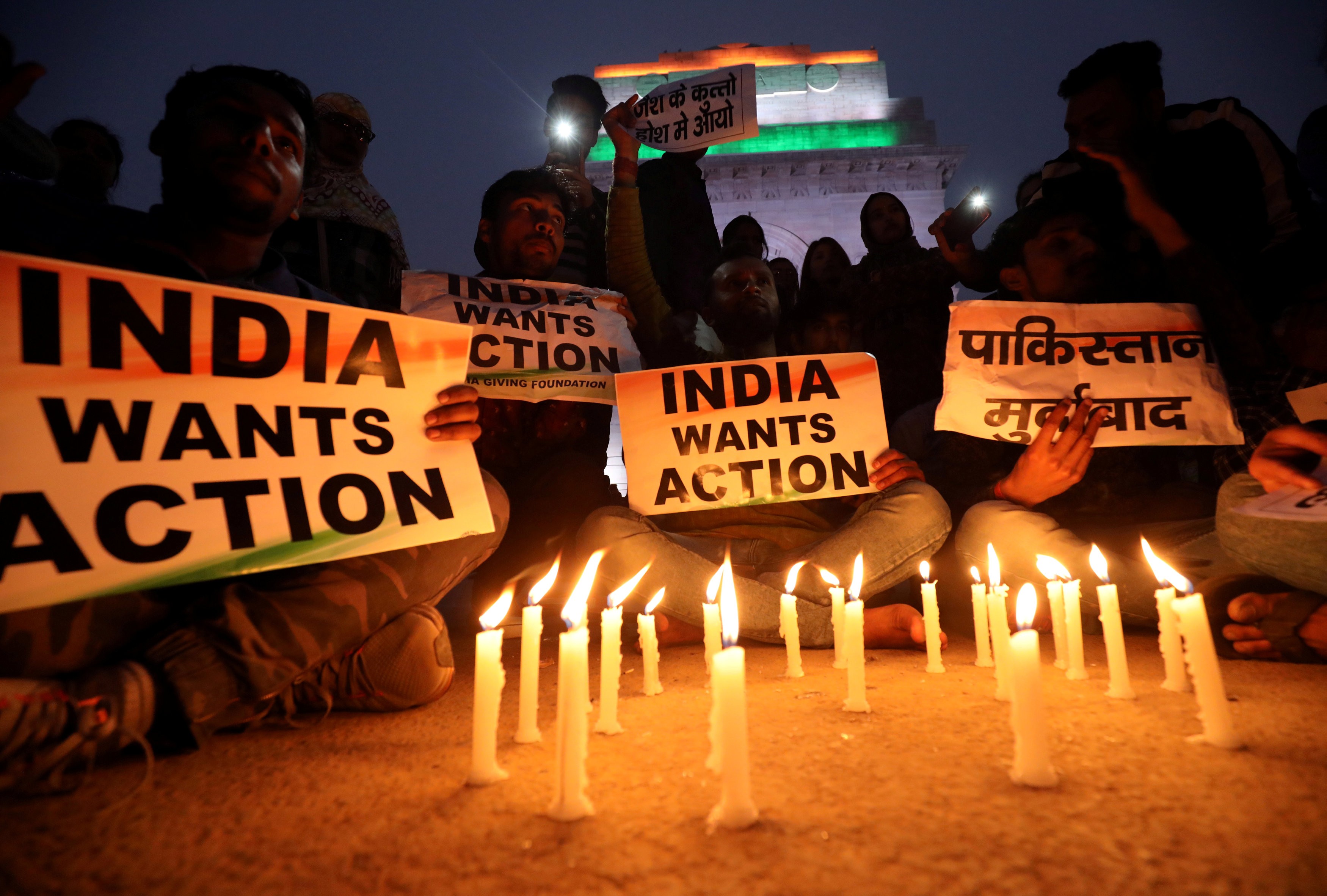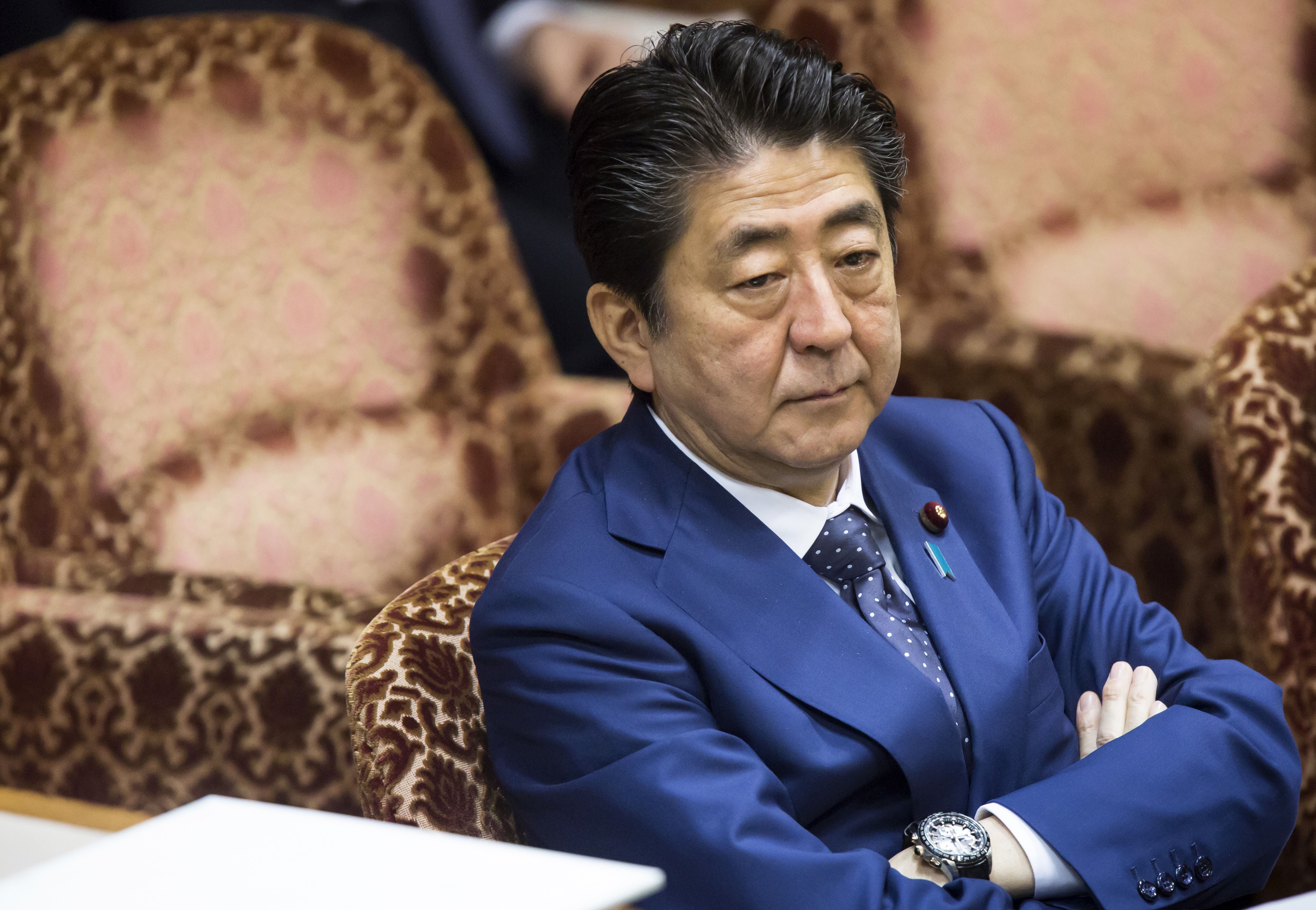
The security environment around Japan has changed in the past few years, given the threats from China, Russia and North Korea, and Tokyo is left with few options in response. This hefty new outlay could be a preview of things to come.
Beijing and Moscow seem intent on putting on a show of force as the United States and its allies ramp up cooperation in this part of the world. A rapid deterioration in Japan’s security environment may push Tokyo into boosting military spending and strength.
The security grouping has deepened ties over the past year, and has pledged to advance vaccine production and delivery. While the US, Japan and Australia have stepped up to help India, non-Quad relationships remain important too.
Bangladesh relies on India’s backing in tackling terrorism and economic issues, while Bangladesh is key to Modi’s vision of economic connectivity. But long-standing water disputes and Bangladesh’s warming relations with China may become areas of concern.
The new year presents Japan with an unique opportunity to recast its economy and move into new and emerging areas instead of depending on traditional sectors. While this year promises to be challenging for its economy, whether Japan can turn the tide will depend on whether it has learned the right lessons from 2020.
Japan’s economy grew 5 per cent in the third quarter, with private consumption and exports both up. Challenges still loom, though, with uncertainty over US-China relations, the fate of the Tokyo Olympics and a spike in Covid-19 cases.
Young micro-entrepreneurs are exploring new avenues as demand for e-commerce and online education grows. PPE production is also ramping up as supply lines shift from China. India must seize the initiative instead of trying to resuscitate the old agriculture-reliant model.
Under Abe, the biggest champion of relations between the two nations, Japan has become a vital investor in India and a major strategic ally. It will be no easy task for New Delhi to nurture a similar friendship with Abe’s successor.
Closer ties are a win-win as the US needs more jobs in an election year while India needs a new weapons source amid Russian neutrality in Sino-Indian clashes. Heightened defence cooperation is a bright spot in a US-India relationship that has hit rocky ground elsewhere amid differences over trade and tariffs.
The government’s new growth strategy to promote digitisation and diversity at work is aimed at shifting the economy onto surer footing, following the Covid-19 blows to its tourism and hospitality sectors.
The plunge in remittances will hurt but this is a chance for India to reverse its brain drain, retrain for new jobs in e-commerce and boost its infrastructure sector to create jobs, answering Modi’s call for a self-reliant India.
Not only will the restrictions on person-to-person contact shrink domestic consumer spending, but Covid-19’s impact on Japan’s trading partners will also hit exports hard.
Japan’s announcement of funding for companies that shift production lines back to the country marks a step away from its earlier strategy of trying to improve relations with China.
India has many hurdles to overcome, from reskilling workers and ensuring power supply stability, to adding deep seaports and tax breaks. Critically, given stiff competition, speed is key if India is to capitalise on the supply chains moving out of China
As infections and deaths mount among Diamond Princess cruise passengers, Japan’s ad hoc response to the outbreak, in part possibly to avoid upsetting China, is looking wholly inadequate. Will it learn its lessons in time for the Summer Olympics?
Mainland Chinese make up by far the biggest group of tourists in Japan, boosting the economy but also bringing overcrowding and cultural discomfort. Such economic reliance also runs the risk of being weaponised during a political stand-off.
Tokyo faces myriad threats, from China, North Korea and Russia to cyberattacks on the Summer Olympics – and Shinzo Abe’s golf buddy Trump may not always be around to bail Japan out
India has ties with all the major regional players and the heft to alter the balance of power, if it so wished. A tradition of ‘strategic autonomy’ is likely to stay its hand, however – unless Beijing provokes it.
An agreement between India and Japan to help Sri Lanka develop Colombo Port fuels speculation they are planning a deeper challenge to Chinese influence in the region.
Beijing’s support for UN sanctions on the Jaish-e-Mohammed leader has cleared the way for better relations with both Washington and New Delhi
Dealing with China be one of the major foreign policy challenges that confront India’s next government, making it worthwhile for the two to focus on their areas of cooperation, writes Rupakjyoti Borah.
For years, the four-country security grouping has failed to live up to its potential, largely because of a lack of support. Rupakjyoti Borah asks if now is the right time for New Delhi to bring the alliance back in from the cold.
With Washington and Pyongyang in a stalemate, Tokyo has an opportunity regarding Japanese abductees in North Korea. But if Abe is next to ‘face Chairman Kim’, he’ll need a hotline to Pyongyang. Who’s he going to call?
What are the options New Delhi is weighing up as it considers its response to a deadly attack in Kashmir that killed more than 40 paramilitary police?
Without a breakthrough in its talks with Pyongyang on the abductee issue, Tokyo must still strive to gain some influence over the denuclearisation process on the peninsula, to ensure its concerns are addressed.
